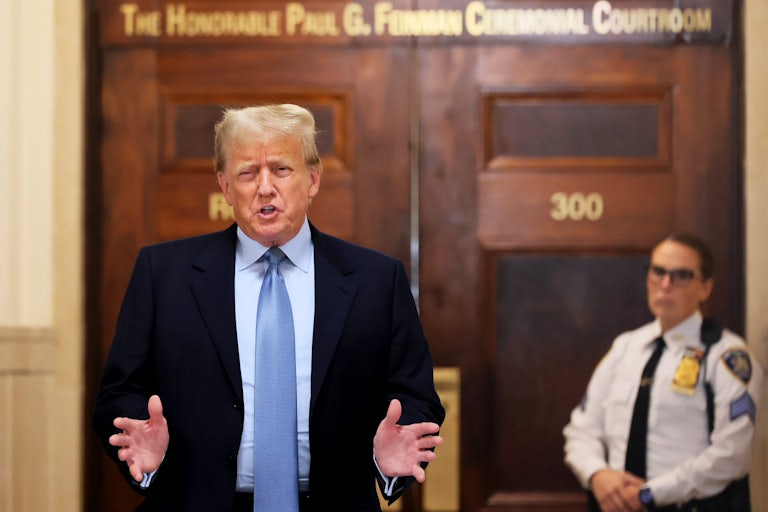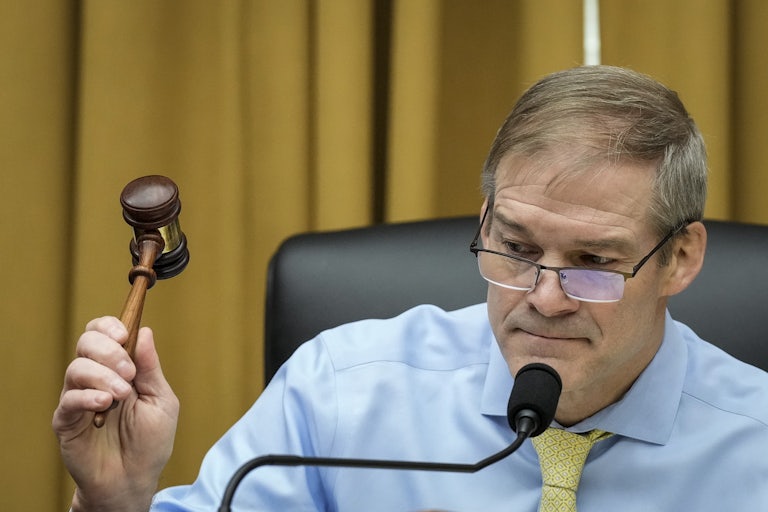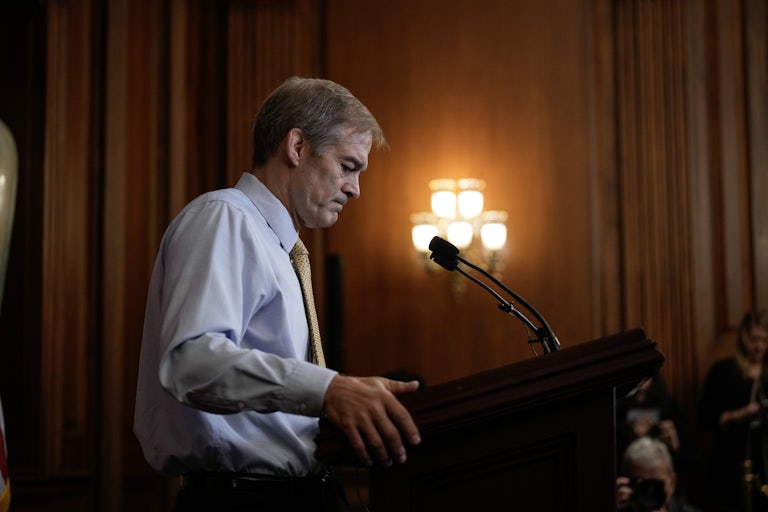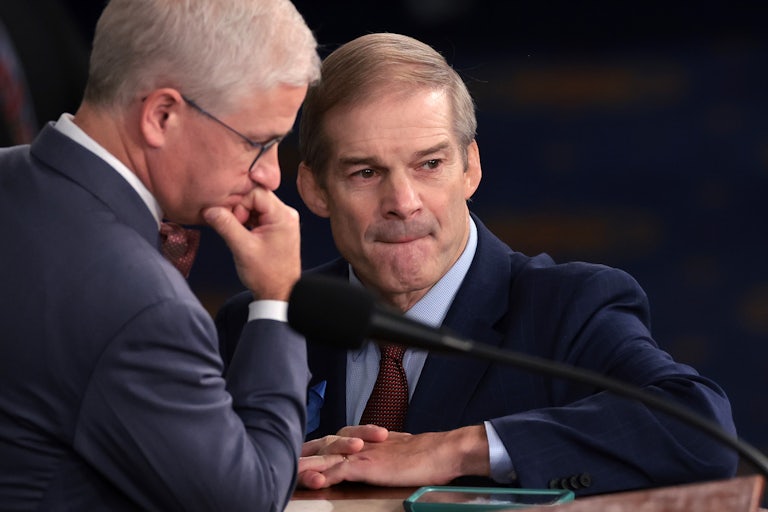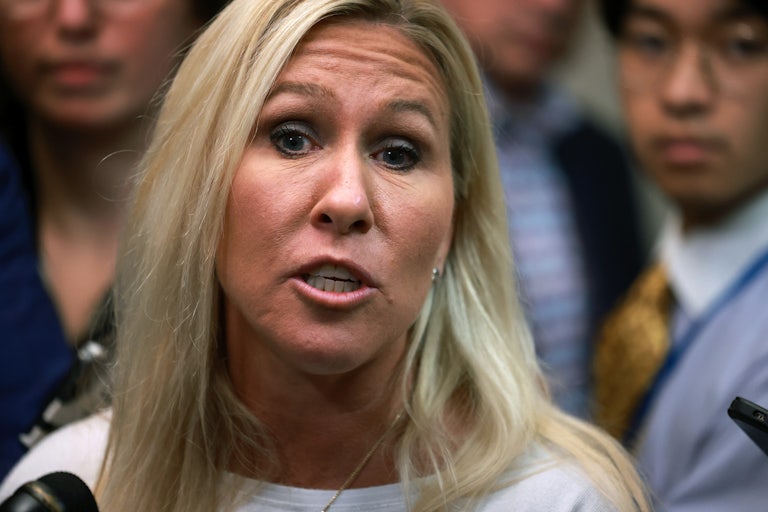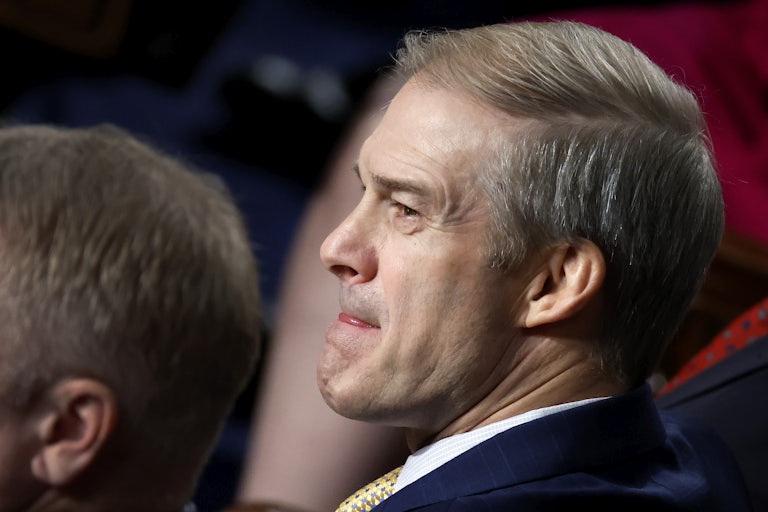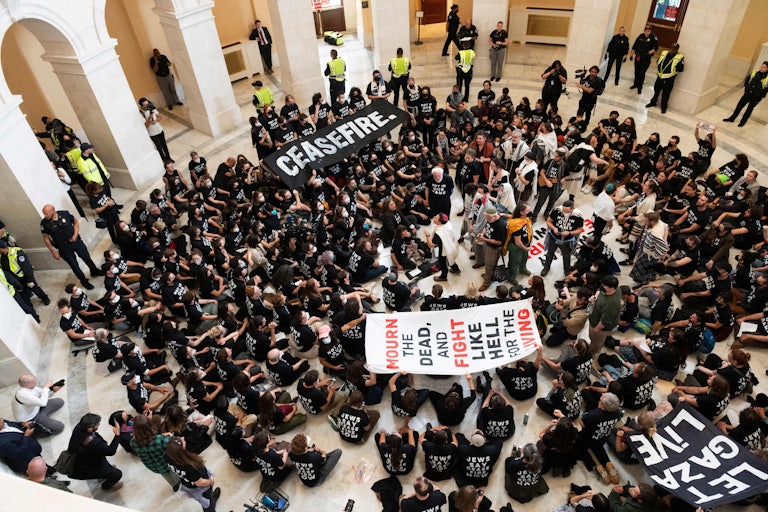The GOP’s Last-Resort Speaker Solution Is Going Down in Flames Too
Some Republicans had thought that they could hand the gavel to temporary fill-in Patrick McHenry. Looks like they'll need to think again.
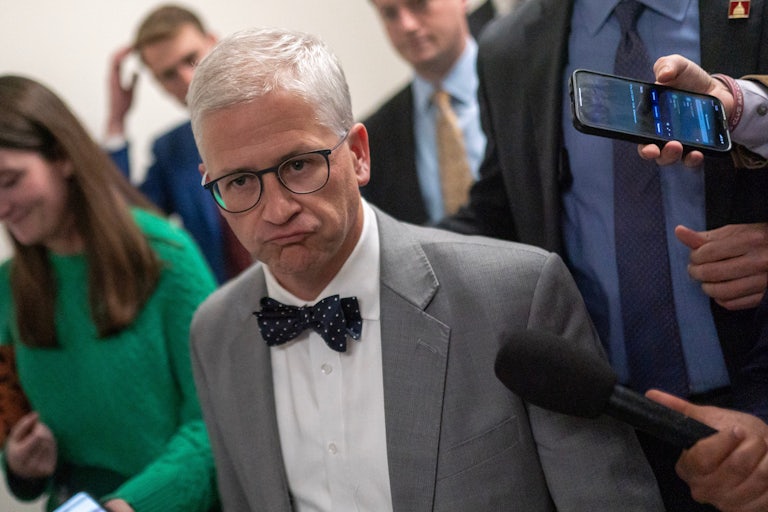
The bedlam in the House Republican caucus that has finally ended Jim Jordan’s quest to become speaker seems to have pushed their temporary speaker to the edge as well. Speaker Pro Tempore Patrick McHenry, who has been presiding over the chamber in a limited capacity as his colleagues have spent the past two weeks attempting to appoint a new permanent speaker, has threatened to quit if Republicans push him to pass legislation above the authority of his position, reported NBC News. McHenry’s warning comes as some Republicans debate whether they need to take a full floor vote to expand the temporary speaker’s powers, which are currently more or less restricted to permitting him to facilitate and tally the votes to elect his permanent replacement.
“If you guys try to do that, you’ll figure out who the next person on Kevin’s list is,” McHenry told Republican members in a closed-door meeting on Thursday, referring to the secret succession list drafted by former Speaker Kevin McCarthy. McHenry was temporarily handed the seat when McCarthy was ousted more than two weeks ago by a fringe group of Republicans fronted by Representative Matt Gaetz.
Expanding McHenry’s temporary speakership was seen by many Republicans as a plan of last resort to conjure some kind of alternative to Representative Jim Jordan, whose own run for the House speakership repeatedly failed to secure the majority needed to give him the gavel. But the plan to leave McHenry in the seat faces similar headwinds, as a majority has vocally opposed the resolution to promote him thus far.
Ultimately, McHenry may not even need to quit, with some Republicans apparently hoping to fire the fill-in. On Friday, Florida Representative Greg Steube was caught with a resolution to remove McHenry from the temporary position, though when confronted, the congressman claimed the motion wasn’t his and that he did not support the measure.
👀Here's Rep. Greg Steube, R-Fla., holding a resolution on the House floor to remove Rep. Patrick McHenry as temporary speaker. (AP Photo/@alexbrandon) pic.twitter.com/fdDOkhAFeN
— Farnoush Amiri (@FarnoushAmiri) October 20, 2023
Jordan had planned to enter a weekend series of voting rounds, but his colleagues finally came out against his continued attempts to secure the nomination—first by threatening to boycott future votes in protest, according to Fox News. That move could have handed the speakership to House Minority Leader Hakeem Jeffries, who, in the face of a large absence, might swing the majority with 212 unified Democratic votes behind him. The caucus, in the end, forced Jordan to stand down.
The Democratic party leader nevertheless teased that path to resolving the weeklong farrago. “We are saying to traditional Republican colleagues, good men and women on the other side of the aisle, end the attachment to the extremist Jordan and join with Democrats in finding a bipartisan path forward,” Jeffries told a press huddle ahead of the speaker vote.
